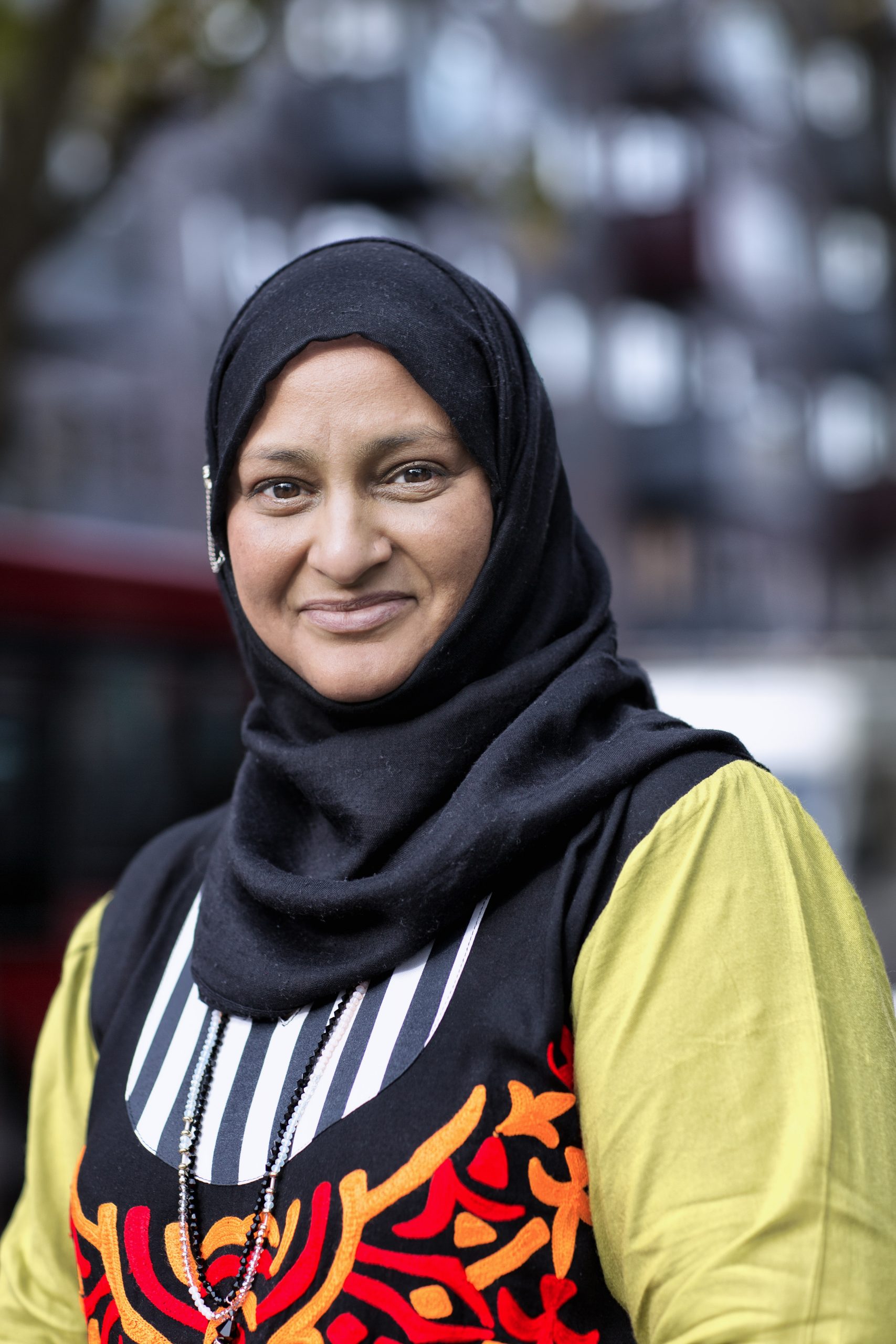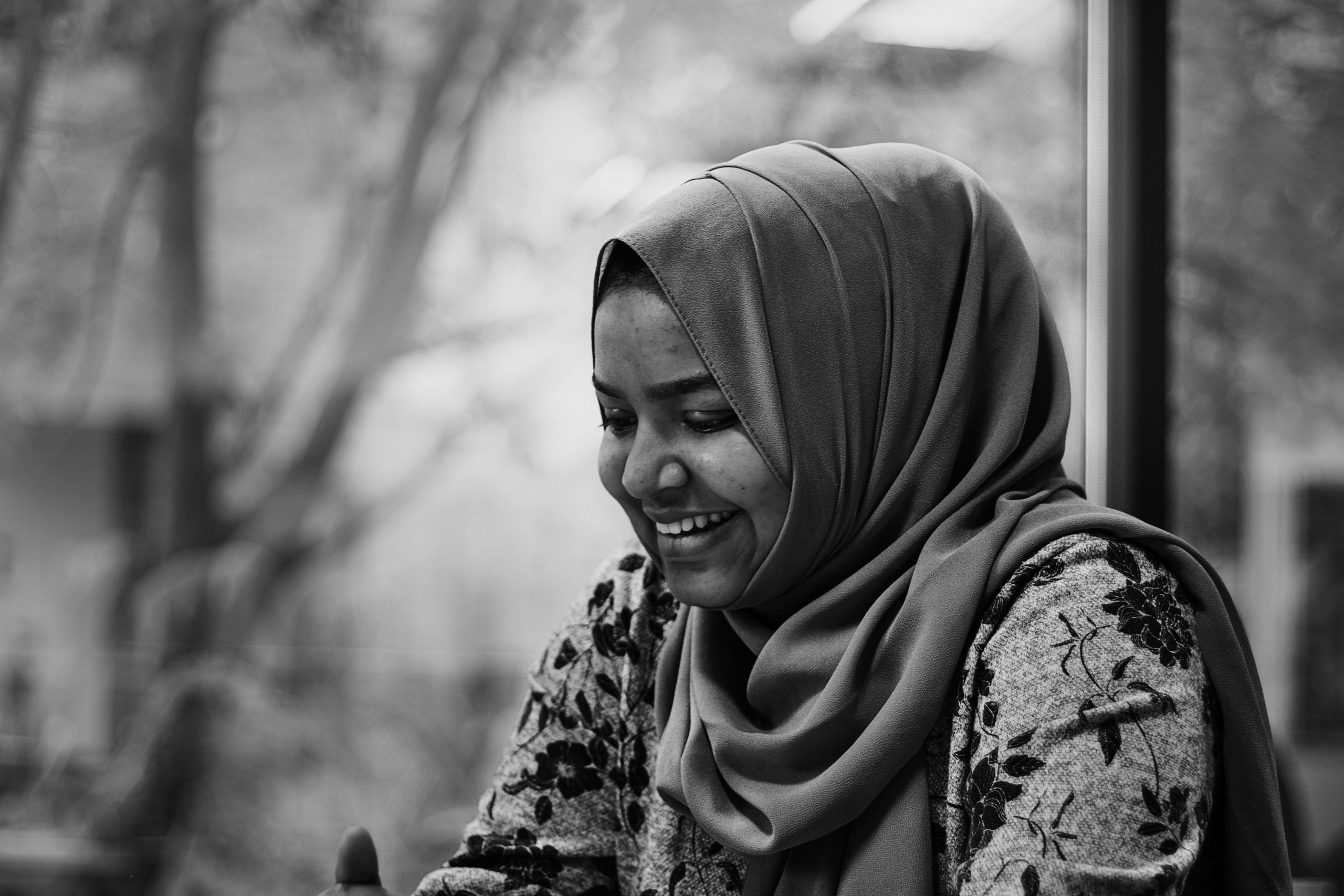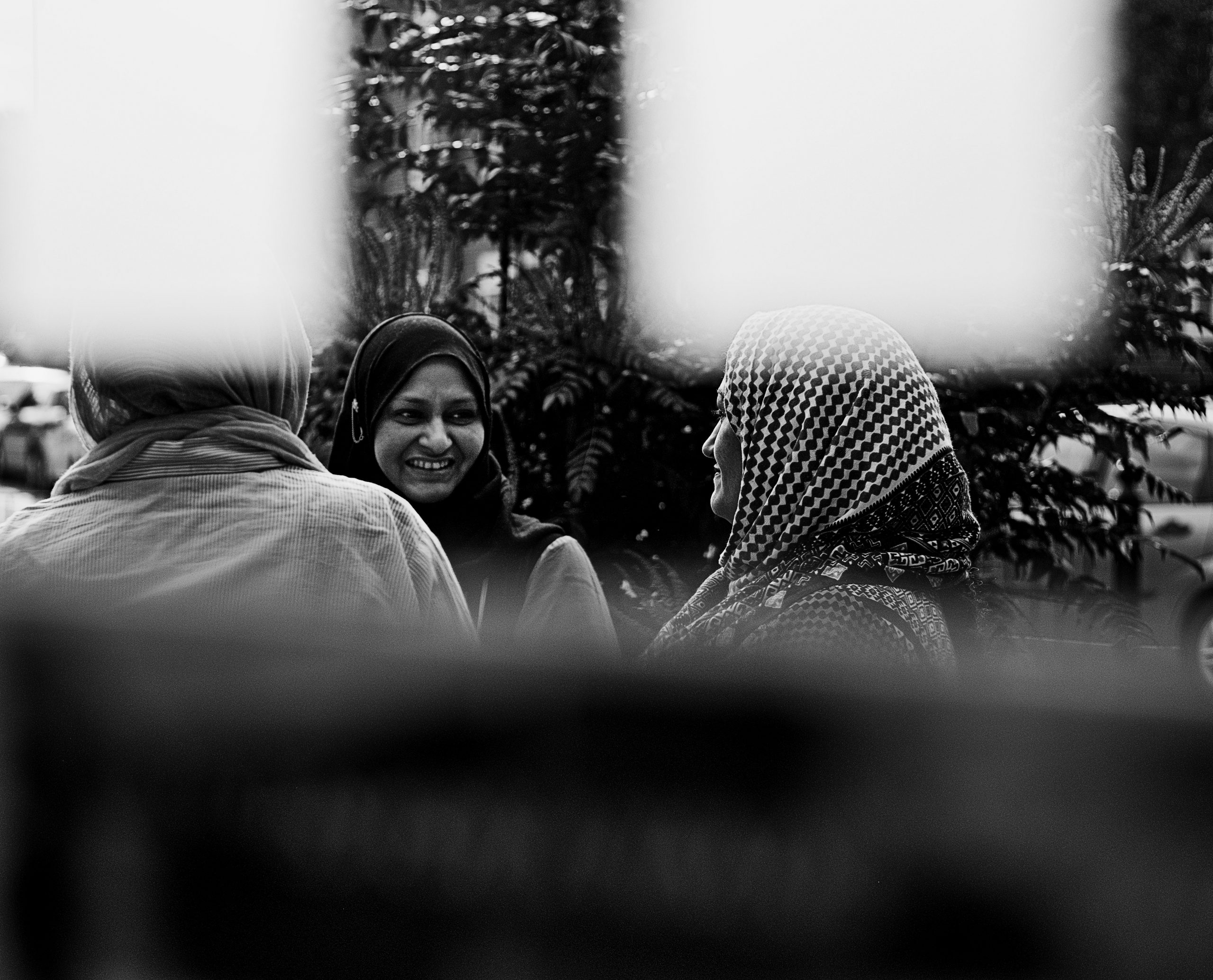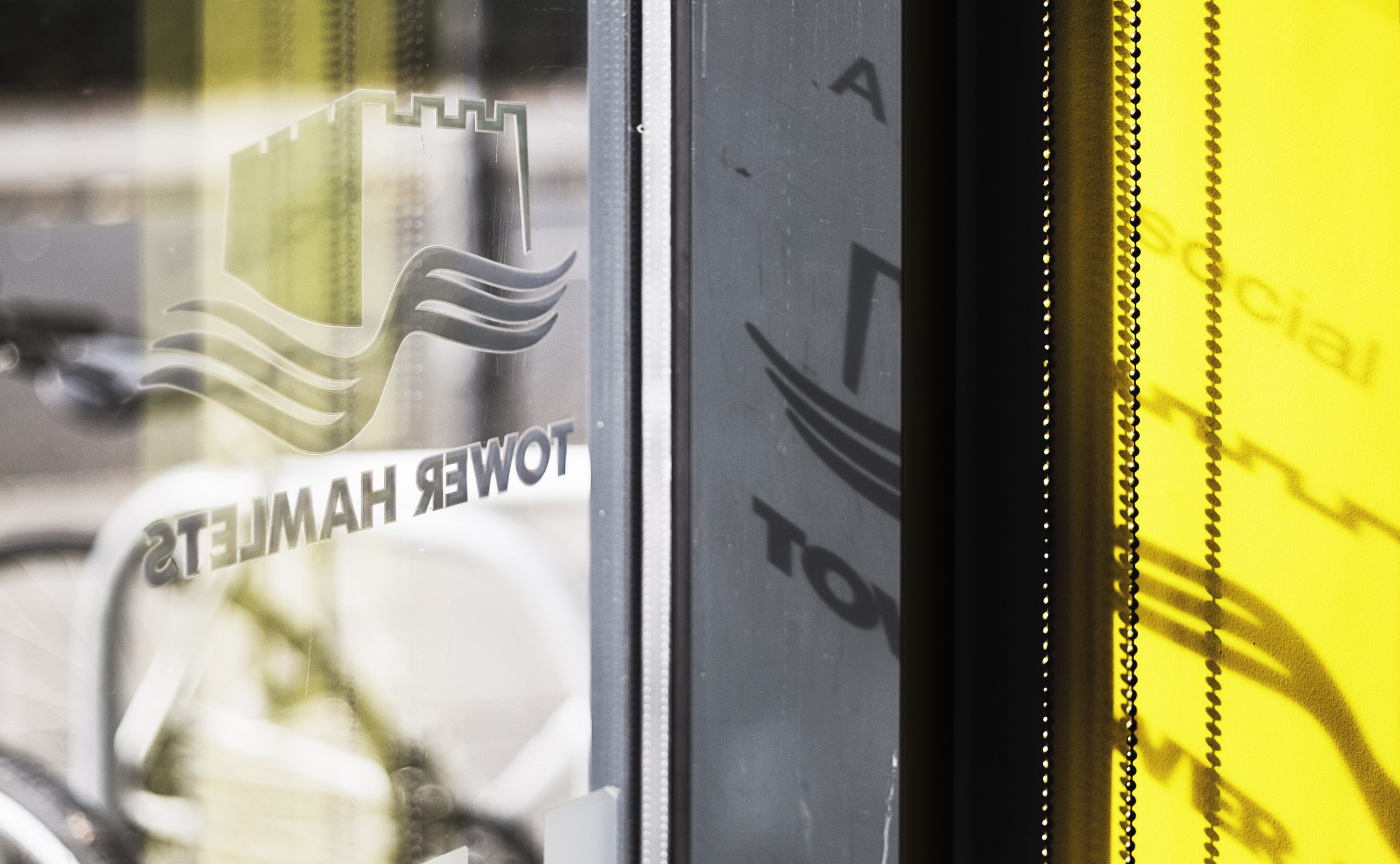Category: Community Programme — Published:
Community Conversations is a series of discussions prompted by networks, collaborations and friendships developed through the Whitechapel Gallery’s Community Programmes. We want to share the perspectives of the groups we work with and to reflect on a year that revealed the strength, resilience and power of community.
Since Autumn 2019, Whitechapel Gallery has been working with participants of City Gateway Women’s Programme on a project called Voices That Matter. Together, we wanted to centre voice as a bodily thing of the breath, the lungs and the tongue, and use vocal exercises and group singing as a means to engage with voice as a gendered construct with a social and political meaning. Our final project, a film and sound work, will be shared as part of a Community Festival this summer.
Moshoda Khatun is an Outreach and Participation Worker at City Gateway. In this conversation, she brings her own life story to bear on the importance of community services dedicated to women, and about how art can help develop our confidence and independence.

Can you introduce City Gateway to people who don’t know anything about your work?
We support women who need language and work skills. Our courses are free; they take place during term times and within hours that allow the women to study flexibly whilst their children are at school. We also provide a creche in the same Stepney Green building where the courses are taught. Our families and children’s programme, called Stay and Play, supports women with all kinds of things: it could be writing a benefits letter, housing issues, or any personal matters. Women can talk to our family support worker, and she will help them. We provide coaching for women, help them update their CV, and support them to prepare for job interviews.

Can you tell us about you? What do you like about your work, and what are the challenges?
I first came to City Gateway as a learner, twelve years ago. I had moved to London from Bangladesh with my dad, and lived with my brother and sister-in-law before I got married and became a mother. I have four children, and it was through my daughter’s school that I came into contact with City Gateway, and took advice and guidance courses at first, then courses in IT and customer services, maths, English. I was then offered volunteer work and was later employed in the role I do now.
I feel blessed to work for City Gateway: it gave me the confidence I needed in my life, and now I get to give back, to support our community. When I first started, I didn’t have the confidence to write my own name in English. Now, I never feel like I’m going to work; I feel like I’m going home. I love seeing the development in women who come and join the courses, how they grow and their lives change for the better. For me, the experience has helped me maintain a good relationship with my children: the fact that we are all out studying and working means that we have a shared understanding of what it’s like out there in the city. If you haven’t grown up here in the UK, it can be hard to understand everything in the culture – for example, I used to be a bit suspicious when my kids told me they were late because of the bus. When I started studying myself, I quickly experienced that in London, this is very common! I remember the kids saying to me, welcome to our world! It’s very important to share the same world as them.

What do you think are the biggest challenges for the women in your life (at home and at work) since the pandemic?
It’s been really difficult for the women to cope with the pressure of taking on the education for their children. We women are the base, we are the pillar for our children and we are role models for them. You know, it’s so easy to put ourselves down, and be put down by others, but our mental health is very important. Space is a big issue, many are dealing with overcrowded houses with husbands, kids, in-laws and they simply don’t have space to sit down and work. Lots of the ladies we know have dropped out of their courses because they don’t have enough Internet bandwidth and so they give the priority to their husband and kids.
There has been a huge amount of stress for families losing people to coronavirus. Some households I know have lost two or more people. This has also resulted in financial crises for some families; one woman whose husband passed away is now having to deal with a broken boiler that she cannot afford to fix, she is dealing with all her grief and on top of this an issue that she is not prepared for. There’s also some concern about the vaccination, and I think this comes down to trust – a lack of trust in the healthcare system. So from City Gateway, we are trying to offer personal support where we can, but for many women this will have long lasting effects.

City Gateway and the Whitechapel Gallery have had several collaborations over the years. Our project, Voices That Matter, focuses on women’s agency and power. What do these words mean to you? Why did you want to work on a project like this?
I think for women, we are told to see ourselves in limited ways. Especially in my community, we become housewives and mothers, and we stop seeing who we really are. We stop asking do I love myself, who am I, where am I, what do I see, what do I feel? At Whitechapel Gallery, we are seeing artworks and being asked about what we see, what we feel, how it speaks to us. [In our project], we’ve spoken about our childhoods, our motherlands, our memories, and we’ve been creative. Art is about being who you are, and we are all artists, but we need to be encouraged and given time to explore ourselves.
The hard part is to go inside. Going to an art gallery is a big thing, you know. I think sometimes people close themselves off, but also it’s difficult sometimes to understand what happens inside [a gallery]. But once you’re in, you realise that it’s all about colour, it’s all about community, and culture, joy and celebration. I find it amazing, and it gave me confidence to visit other galleries in London, and on holiday. That has made a difference in my life. I’ve been coming to workshops at the Gallery for years, and now I carry myself as an artwork, and that’s what I share with the world.